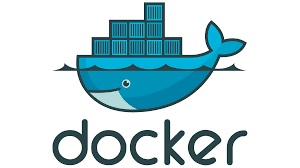What exactly is Docker. Docker is a Platform As A Service, (PaaS), that uses virtualization to deliver software in packages called containers. Docker automates the deployment of these lightweight containers so that the software can work efficiently in multiple isolated environments.
Virtualization is the creation of a virtual computer hardware platform, storage, and network resources. Virtualization creates these virtual resources from hard drives, CPU's, and GPU's. When virtualizing you combine a network of resources into what is seemingly one object.
A Virtual Machine (VM) is software used for virtualization but must be built on top of hypervisor software. This allows VMs' to run a separate operating system from the host hardware. The advantages of this are you can install new software, change code to the operating system, or rollback to a previous configuration while maintaining the security of the host hardware and operating system.
A Container is an application completely isolated from other programs on a shared kernel. Containers are built from read-only images that usually run single processes or applications but can run multiple if needed. They are a guest operating system with virtual recourses who have no functional awareness of other processes running on the host operating system. The communication between the container and the device, as well as any other processes are handled by a container engine. One of the fundamental applications to Docker Daemon and its role in the Docker Engine.
Docker uses Daemon to create and manage containers. The advantage of these docker containers is their portability. They can run in multiple environments because of their lightweight in resource usage. They run consistently no matter the operating system you implement because each container packages its own dependencies.
Docker Containers Vs. Virtual Machines
Direct access to hardware
Easily update and delete instances of applications
Simplifies complex tasks such as a CI/CD Pipeline
Facilitate the use of microservices
Although these seem like two competing tools when deciding to virtualize your programs, they can be used together. The security of virtual machines and the efficiency of Docker containers allow you to take advantage of all the benefits of virtualization. When using VMs' to secure your applications and using containers to deploy code between machines you can utilize both of their strengths.







Top comments (0)